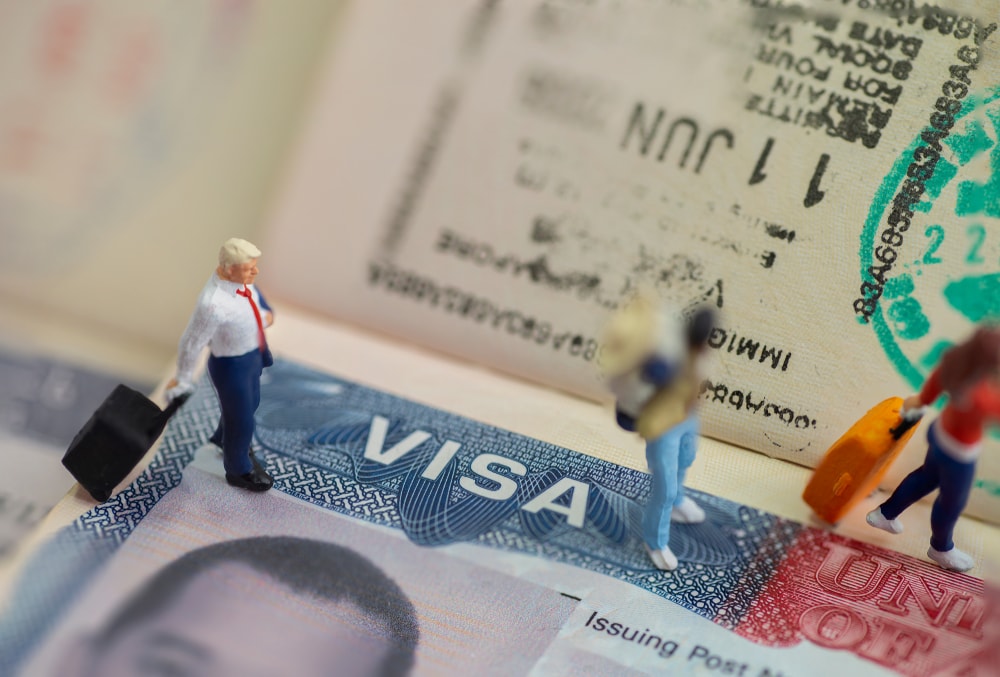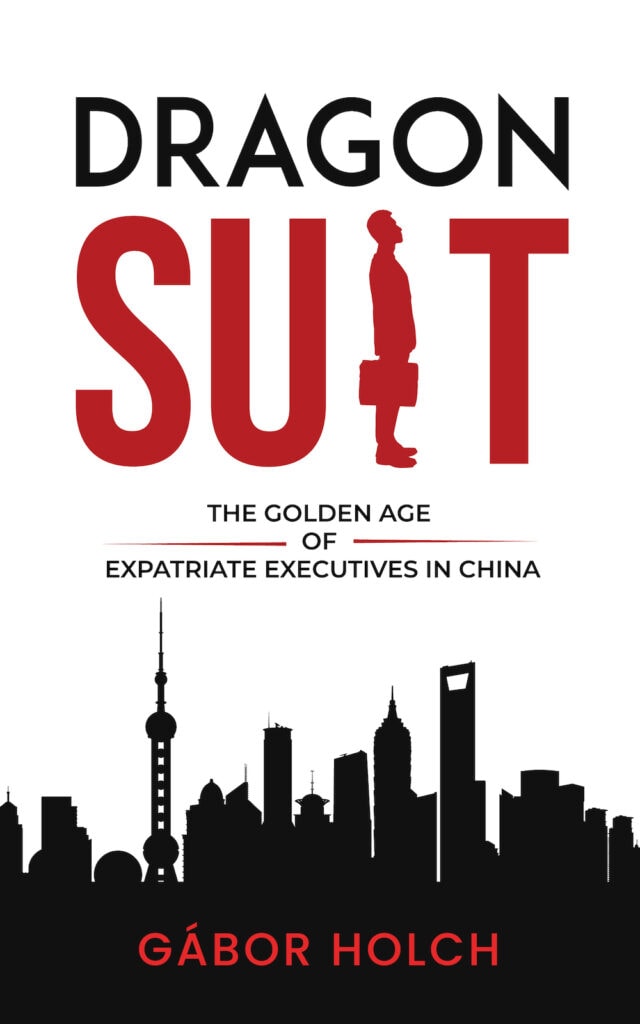Paul French speaks to the author of a new book that looks at how expat managers and executives experienced the hurdles of life and work in China, crafted their personal leadership methods and ultimately managed to perform well
Hungarian-born Gábor Holch has spent the last two decades in Shanghai working as an intercultural leadership consultant to a wide range of multinational and Chinese clients. He’s a Mandarin-language Certified Management Consultant (CMC), and his clients include AkzoNobel, Bayer, BMW, Nissan, Nokia, Patek Philippe, PepsiCo, Peugeot-Citroën, Porsche and The Walt Disney Company. Now he’s decided to write a book, Dragon Suit: The Golden Age of Expatriate Executives in China (Business Experts Press), which attempts to relay the experiences, pitfalls and success of expat managers of China operations, including dealing with localised leadership, building your networks, potential decoupling, the culture shock of Chinese business and how to maintain a decent work/life balance. Paul French caught up with Gábor in Shanghai for CBBC to find out more.
OK. I’ve owned a single-breasted suit, a double-breasted suit, and I’ve dipped into a hotel pool (not saying which one) in my birthday suit. So I’ll bite – what’s a dragon suit?
The definition of a Dragon Suit is social as opposed to sartorial: think of the way shop-floor employees mention “the suits”. It refers to an expatriate manager or executive employed at a multinational firm in China (expatriate or expat traditionally meaning people whose contract, salary and benefits come from the headquarters outside of China). But such classic expat contracts are on the way out in China, and by extension, I also include people who usually take over former expat jobs, such as foreigners on local contracts or even Chinese managers building careers at international companies.
Last month, we spoke to Ker Gibbs, who told us he thought perhaps localisation had gone a bit far these days. What do you think – are we peak localisation, or is there further to go….and is it a good thing?
Whether the transfer of former expat jobs to local managers has gone too far and if it’s good or bad is all in the eye of the beholder. Around the time I arrived in China in 2002, a year after the PRC’s accession to the World Trade Organisation (WTO), multinationals already had high hopes for management localisation. It was meant to reduce costs, integrate China branches better into a vast and complex, mostly Mandarin-speaking, market, and smash the “glass ceilings” that kept local talent from top jobs. Those goals have been mostly accomplished, but unexpected side effects have emerged.
Chinese managers didn’t learn English and other foreign languages at the expected rates and still find it harder to travel than citizens of 80 other countries based on passport-strength rankings. Emerging local firms drain talent from multinationals, and China’s tense relations with major economies make employment at foreign firms less attractive. Nevertheless, I am convinced that the trend will continue: China’s economy grows faster than the country’s foreign population, so foreign talent will be insufficient.
The other buzzword of the moment is ‘decoupling’. I think we all know the arguments for and against decoupling, so what I want to ask you is how are your clients and expat managers dealing with orders from back home to start the decoupling process?
As an intercultural leadership coach and consultant, I enjoy a front-row seat to this exciting game and perhaps see a few key dynamics clearer than others.
One is that while governments limit the playing field for private companies and executives try to evade those limitations, each side is doing their jobs as usual. I emphasise this because I see too many people take sides. Another important fact to consider is why it’s so hard to keep multinational executives in check from headquarters in DC, Brussels or Canberra. Dragon Suits who have managed to keep their businesses afloat in China for even a couple of years become masters of dodging regulations. Backdoors and loopholes become their habitual reality: they also learn to sincerely apologise and then do it again. Where and how to store business-related data is perhaps the best illustration. Those who prioritise national security concerns accuse corporations of irresponsible behaviour. The expat and local executives I coach worry more about the Chinese end of the global supply chains we built for goods, services, data and people over the past two decades. The chase will surely continue, perhaps with higher stakes.
You were in and out of Shanghai during the Covid, working remotely and running workshops via Zoom. Overall, as a consultant who has emphasised the face-to-face nature of business in China, how do you think the developments we were all forced to deal with during the pandemic changed being a dragon suit in China?
The pandemic and China’s “zero-Covid” regime fundamentally changed the experience of running international operations from the country. I myself got stuck outside of China for multiple half-year periods when I tried to visit international clients and then stuck inside China with no access to the larger, non-PRC half of my clientele. Forced separation from home and family, or from China-based teams and businesses, was the straw that broke the camel’s back for many expats. Most white-collar work shifted online during the pandemic, but China’s insular ecosystem severed many ties.
As the world recovers, China lingers in isolation longer due to visa restrictions, high travel ticket prices and shaken interest in visiting there. Consequently, being an expat there became a lonelier experience, especially for those who do not speak Mandarin fluently. Moreover, Chinese business culture has stressed the importance of personal networking for decades, and that has become much harder now. The China-based workshops and annual meetings for global or Asia-Pacific leadership teams that I used to facilitate for global firms have moved elsewhere. Beijing and leaders of the global firms themselves will need to work hard to restore trust and reverse the trend.
There’s no denying there’s been a pretty significant ‘expat exodus’ from Shanghai and other cities during and since the pandemic. How do you think this is affecting the lives of the dragon suits that remain in-country? And how easy do you think it will be for foreign MNCs to recruit new and capable foreign staff?
I saw this exodus first-hand as I finished my interviews for Dragon Suit. It is telling how many of the featured managers assured me in 2021 that they would stay in China, but most were gone by mid-2022. Those expats who weathered the pandemic years inside China eventually formed a strong commitment to the country and began to forget what life is like elsewhere. From what I see as their coach or friend, many such foreigners upgraded their careers due to a chronic shortage of non-native talent. Not all jobs can be “localised” when executives leave large multinational firms, so human resources managers fish for locally available foreign talent.
Although both the demand and supply for expats today is a fraction of a decade ago, some movement will remain. For example, the China bonanza continues for pharmaceutical, luxury fashion and some automotive, service and investment firms, and they will need expat leaders and specialists. Most new arrivals never experienced pre-pandemic and Covid-era China, so they start with a clean slate. China is sufficiently large and economically successful to continue attracting global talent, and I get several emails a week asking for help with finding a juicy expat job in China.
We’re also quite clearly in a new economic environment post-pandemic. The economy has slowed, the job market has tightened, consumption has stagnated in many areas and there are significant problems in key industries such as property. What is your advice to a new dragon suit landing at Pudong International for the first time?
The hypothetical Dragon Suit landing at Pudong Airport has already taken a big leap. That is why I start the stories of expats not with their arrival but with their reaction to the first offer to relocate to China. I wish I could coach most prospective Dragon Suits well before they board that flight, but hurried relocations seldom allow time for thorough cultural preparation.
My advice for the new Dragon Suit is to brace for culture shock because new arrivals have unrealistic expectations of how much they can achieve in the first year, and China can hit them from any direction. Most expats arrive in the summer or early autumn, and subtropical heat can make adjustment harder. But beyond the basics, I try to prepare clients for the way cultural differences manifest themselves in the neck-breaking speed of work that top Chinese cities can dictate, the quasi-parental role that a manager must play, the looming presence of politics in business and the permanently temporary existence of foreigners in the PRC that a source I quote in the book calls “immigration without integration”. How individual expat executives experienced these hurdles, crafted their personal leadership methods and ultimately managed to perform well in China is well documented in Dragon Suit.





